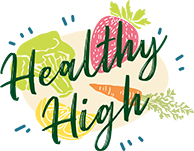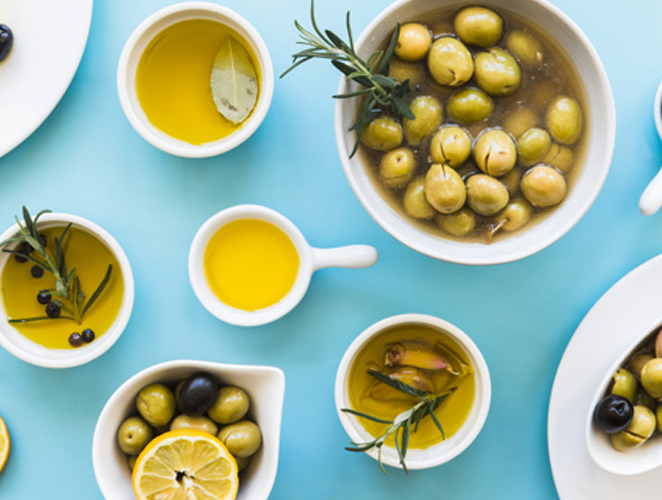Know Your Fats – The Good, Bad and Ugly

Prebiotics- The “Gut Fertilizer”
May 20, 2020
Health Halo Foods
June 15, 2020Know Your Fats - The Good, Bad and Ugly
Fats have always been demonized and many of us still believe that eating fat will make us fat and hence we choose to stay away from this important macronutrient. Low fat diets have been wildly propagated for decades. But recent research has shown that there are different types of fats and the presence of “healthy” fats in your diet is essential. In fact, adults should get 20% to 35% of their calories from healthy fats.
Fats are characterized by the degree of their saturation. It’s worth understanding the different kinds of fats: Saturated, Unsaturated and Trans fat.
Saturated fat
Saturated fats are fat molecules that are “saturated” with hydrogen molecules. They are typically solids at room temperature.
Saturated fats occur naturally in many foods – primarily meat and dairy products. Beef, lamb, pork on poultry (with the skin on) contain saturated fats, as do butter, cream and cheese made from whole or 2 percent milk. Plant-based foods that contain saturated fats include coconut, coconut oil and cocoa butter, as well as palm oil and palm kernel oil (often called tropical oils).
For people who need to lower their cholesterol, saturated fat should consitute no more than 5 to 6 percent of their total daily calories. For someone eating 2,000 calories a day, that’s about 11 to 13 grams of saturated fat.
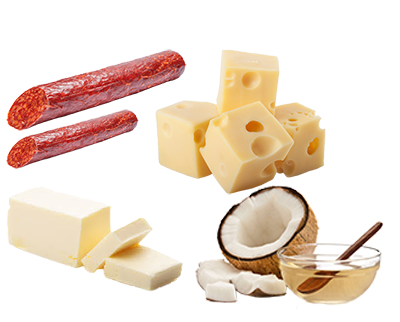
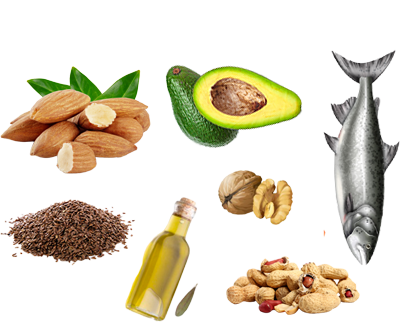
Unsaturated fat
There are two kinds of unsaturated fats: monounsaturated and polyunsaturated. Monounsaturated fats have one (“mono”) unsaturated carbon bond in the molecule. Polyunsaturated fats have more than one (“poly,” for many) unsaturated carbon bonds. Both of these unsaturated fats are typically liquid at room temperature.
Unsaturated fats are found in fish (such as salmon, trout and herring), and in plant-based foods such avocados, olives and walnuts. Liquid vegetable oils, such as soybean, corn, safflower, canola, olive and sunflower, also contain unsaturated fats.
Eaten in moderation, both kinds of unsaturated fats may help to improve your blood cholesterol when used in place of saturated and trans fats.
Trans Fat
Trans fats (or trans fatty acids) are created in an industrial process that adds hydrogen to liquid vegetable oils to make them more solid. Another name for trans fats is “partially hydrogenated oils.”
Trans fats raise your bad (LDL) cholesterol levels and lower your good (HDL) cholesterol levels. These changes are associated with a higher risk of heart disease.
Trans fats are found in many fried foods. Baked goods, such as pastries, pizza dough, pie crust, cookies and crackers also can also contain trans fats.
Since 2006, the FDA has required trans fat content to be listed on the Nutrition Facts panel of packaged foods. In recent years, many major national fast-food chains and casual-dining restaurant chains have announced that they will no longer use trans fats to fry or deep-fry foods.
Are all foods labeled "trans fat-free" healthy foods?
To find the amount of trans fats in a particular packaged food, look at the Nutrition Facts panel. Companies must list any measurable amount of trans fat (0.5 grams or more per serving) in a separate line in the “Total Fat” section of the panel, directly beneath the line for “Saturated Fat.” This means if a food package states 0 grams of trans fats, it might still have some trans fats if the amount per serving is less than 0.5 g. Make sure to check the ingredients list for “partially hydrogenated oil.”
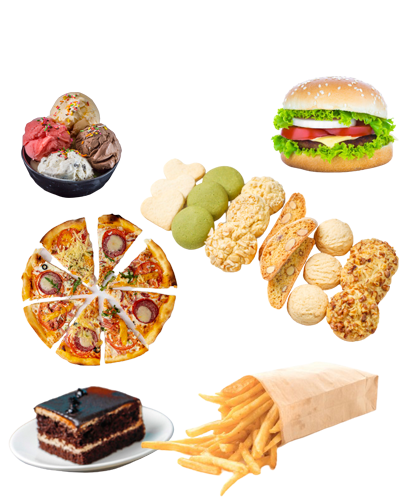
What do good fats do?
You need to make sure you’re getting a certain amount of healthy fats regularly. This way, you ensure that there are benefits for digestion, increased appetite satiation, glowing skin, bright eyes, strong hair, stable blood sugar levels and weight loss. If you have a very active lifestyle, then you could up your intake of fats. Else, you could stick to the lower end of spectrum at 20%. A simple way of doing this is by making healthy fats a part of every meal and snack. I recommend choosing mostly plant-based, organic fats like the following for the most benefits:
▪ Oils– olive, coconut, avocado and flax.
▪ Nuts – almonds, walnuts, hazelnuts, macadamia nuts and brazil nuts.
▪ Seeds – pumpkin seeds, sunflower seeds, etc.
▪ Avocados
▪ Nut butters (preferably raw and without added oils/sugar).
▪ Organic Ghee can also be used in limited amounts.
A guide to choosing your cooking oils
Most Indian households these days use refined oils for cooking and perhaps because it is the most widely available and cheapest option in the market. The word 'Refined' may get you to believe that the oil you purchased is pure and free of harmful chemicals, but the truth is that the refining process actually degrades the quality of cooking oils. The refining process includes bleaching, dedeodorizing and hydrogenation of oils which kill the nutrients naturally present.
This revelation brings out a demand for a better and healthier option. The sole answer to that is cold-pressed organic vegetable oils. No, this is not a new type of cooking oil but just another name for the traditional wood-pressed Ghani oil that was used by your grandmother in the olden days.
Cold-pressed oils are better for your health and are much healthier than refined cooking oils. Here the key advantages of choosing cold-pressed oil over refined oil.
Benefits of Cold-Pressed Cooking Oils
Cold-Pressed Oils In The Market
There are several vegetable oils like Olive, coconut, soybean, groundnut, safflower, mustard, and sesame that are available in a cold-pressed form. Each of these oil has a distinct flavour profile, and you can pick one based on your taste buds and liking.
Keep in mind, some natural oils like mustard oil have a low smoke point, i.e. they burn quickly leading to the formation of harmful free radicals. Such oils should not be used for frying or heated for long durations.
Oils are the most calorie–dense foods on earth. Ounce for ounce, oil packs even more calories than butter or bacon. A diet with hefty amounts of oil invariably produces hefty amounts of body fat, which leads to all sorts of devastating diseases. Try, especially if you are overweight, to limit your intake of monounsaturated or polyunsaturated oils to 1 teaspoon per 1,000 calories daily. Spray rather than pour oil; you’ll likely use much less. Use oil, not as a key ingredient, but as a condiment or seasoning that will enhance the flavors and your appreciation of healthy, natural foods like leafy greens and other vegetables.
And steer clear of all oils and foods loaded with saturated and/or trans fatty acids.
Hope you are now well aware of the damage that the refined vegetable oils are causing to our bodies and you rightfully make a switch to choosing a healthier option for you and your loved ones.
